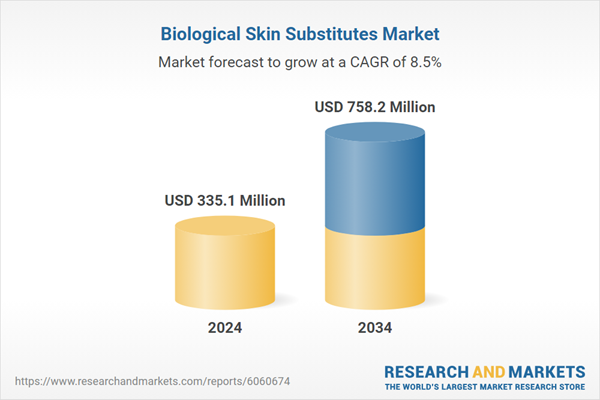The increasing awareness regarding advanced wound care treatments and the limitations of conventional methods such as skin grafting have led to a surge in the adoption of biological skin substitutes. Minimally invasive procedures and regenerative medicine advancements have further enhanced the efficacy of these products, making them indispensable in modern healthcare. With biotechnology companies heavily investing in research and development, the industry is witnessing a wave of innovative solutions designed to improve patient outcomes. Government initiatives promoting better wound care management and a strong pipeline of new product approvals are expected to sustain market momentum over the forecast period.
The market is categorized based on product type, including human donor acellular animal-derived products, tissue-derived products, tissue-engineered skin, and biosynthetic skin substitutes. In 2024, human donor tissue-derived products accounted for 65.8% of the market share. These products are widely preferred due to their superior ability to replicate human skin and support natural tissue regeneration. Clinical trials and real-world applications have demonstrated their effectiveness in treating severe and chronic wounds, leading to their widespread adoption among healthcare professionals. The continuous refinement of these products, coupled with advancements in tissue engineering, is further reinforcing their market dominance.
Segmentation by application highlights that biological skin substitutes are used for acute wounds, chronic wounds, and other medical needs. The acute wounds segment held a 59.4% market share in 2024, primarily driven by the demand for rapid and effective treatment options in cases of surgical wounds and trauma-related injuries. The growing preference for advanced biological skin substitutes over traditional skin grafting methods is further fueling this segment’s expansion. These products provide quick, reliable healing solutions, especially in emergency situations where immediate care is crucial for preventing complications and infections.
The U.S. Biological Skin Substitutes Market generated USD 126.2 million in 2024, with substantial growth prospects ahead. The rising incidence of diabetic foot ulcers, pressure ulcers, and burn injuries is propelling demand for these advanced wound care solutions. Additionally, the presence of leading biotechnology firms, coupled with increasing FDA approvals for innovative skin substitutes, is accelerating market expansion. The introduction of next-generation biological skin substitutes, including cell-based and tissue-engineered products, is reshaping the industry landscape. With continuous technological advancements and growing investments in regenerative medicine, the U.S. market is poised for sustained growth, offering promising opportunities for manufacturers and healthcare providers alike.
Comprehensive Market Analysis and Forecast
- Industry trends, key growth drivers, challenges, future opportunities, and regulatory landscape
- Competitive landscape with Porter’s Five Forces and PESTEL analysis
- Market size, segmentation, and regional forecasts
- In-depth company profiles, business strategies, financial insights, and SWOT analysis
This product will be delivered within 2-4 business days.
Table of Contents
Companies Mentioned
The companies featured in this Biological Skin Substitutes market report include:- Aroa Biosurgery
- Avita Medical
- BioTissue
- Integra LifeSciences
- MiMedx Group
- Misonix (Bioventus)
- Organogenesis
- ProgenaCare
- Smith & Nephew
- Stratatech Corporation (Mallinckrodt Pharmaceuticals)
- Stryker
- Tissue Regenix
- Vericel Corporation
Table Information
| Report Attribute | Details |
|---|---|
| No. of Pages | 130 |
| Published | February 2025 |
| Forecast Period | 2024 - 2034 |
| Estimated Market Value ( USD | $ 335.1 Million |
| Forecasted Market Value ( USD | $ 758.2 Million |
| Compound Annual Growth Rate | 8.5% |
| Regions Covered | Global |
| No. of Companies Mentioned | 14 |









